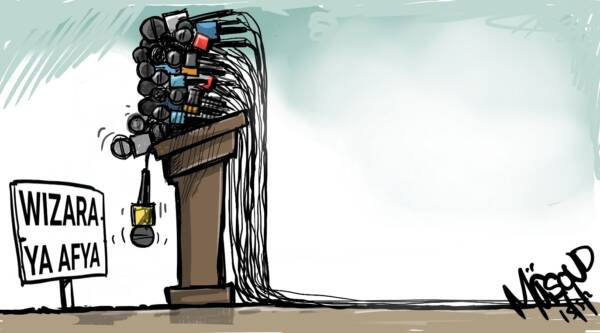
The Coronavirus (COVID-19) pandemic has afforded us an opportunity to reflect and think about potential localized solutions in African settings. As we have been observing so far, a number of people, from both the intellectual and various other communities on the ground, have been attempting to make sense of the disease and trying to come up with suggestions and thoughts as well as some experiences and cases of how the pandemic is manifesting itself in a number of areas in Africa, and how people are trying to deal with it. In East Africa, in general, and Tanzania in particular, social media and Swahili have been the main language of communication and sharing about COVID-19.
In the case of Udadisi, bloggers have been engaging in a number of online platforms including blogs, listservs/email forums, WhatsApp groups and Clubhouse chat rooms that are increasingly becoming potent avenues for generating and disseminating knowledge and information. Udadisi blog has been running for over a decade now. It has always been at the forefront of trying to make sense of serious issues that face our communities, including emerging events that touch or impact a majority of people.
For instance, in 2011 its founder managed to travel and cover the infamous story of Babu of Loliondo who claimed he had a medicine that could cure about 5 chronic diseases. Thousands of people, including the immediate past president of Tanzania and some current ministers, flocked to Loliondo to seek cure. All in search for an alternative form of medical treatment. Or what one contributor to Udadisi referred to as Loliondo: A Marching to Heaven?
During that curious case of Loliondo, Udadisi’s founder managed to interview Babu of Loliondo, village elders, as well as other villagers. Out of this coverage, analytical pieces were produced and published on the blog and in local newspapers of Tanzania. Visual coverage of the phenomenon was also shared.
Over the years, the blog has also covered many related issues, including political, economic and cultural issues that have a bearing on the society at large in Swahili and English as archived at www.udadisi.org. Since the Coronavirus outbreak in East Africa, the blog has also been at the forefront in publishing think pieces from various sources, ranging from medical doctors to social scientists. It has also published articles, from both parents and children who have been impacted by measures taken to contain it, as well as videos, posters and poems. Since the initial outbreak, there are more than 20 posts on the subject that have been published to date.
Knowing that, in our contemporary times, visual and moving images tend to be the more preferred media due to their easy accessibility, in early 2020 the blog initiated a YouTube video platform that covered weekly meetings that were organized by Tanzanian doctors at home and in the diaspora, to share their knowledge and experience in dealing with the pandemic. These recorded sessions which initially ran via Zoom, had a successful attendance of an average of about 200 people; and were designed to be interactive, allowing attendants to ask questions and share their perspectives and experiences on the coronavirus pandemic.
Udadisi also provides updated scientific information, and debunk misinformation about the disease. All these videos have been uploaded and some short clips from them have been widely disseminated. The first, which was posted in a personal platform, had 1000 views before it was moved to the Udadisi YouTube channel for security purposes. Currently, the most viewed video has 782 views. These clips are also shared on WhatsApp, Facebook, Twitter, and emails.
Amidst one of the harshest COVID-19 waves in Tanzania, the founder of Udadisi also organized an online public event aptly entitled Kilioni Zoom: Kuombeleza Pamoja Mtandaoni. The pandemic is not over. As Udadisi shifts into a fully fledged website at www.udadisi.com, we should expect to read and hear more from those at the forefront of providing informative materials on the pandemic and much more beyond it. It is a necessary and much needed multimedia platform, more so in this day and age of misinformation and disinformation.